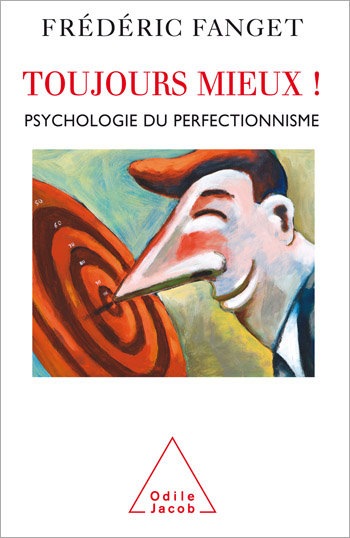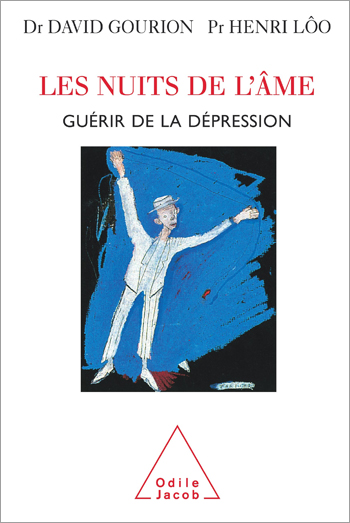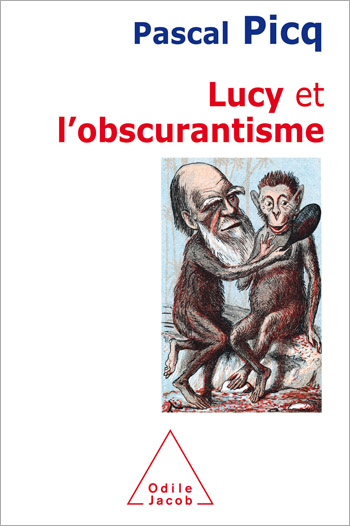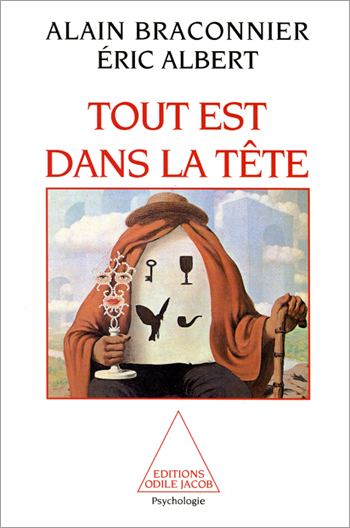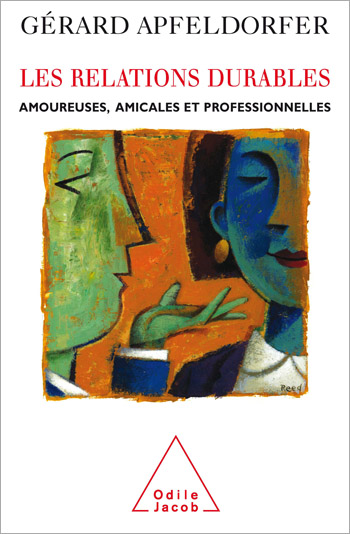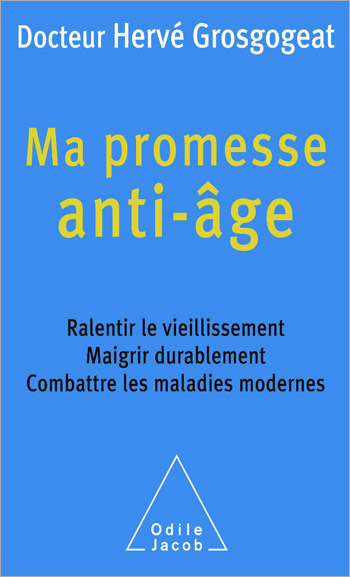Catalog All books

Élie Hantouche, Vincent Trybou
Treating Your Cyclothymia Seven Keys of Self-Mastery
This sensible, useful guidebook is illustrated with numerous examples; it includes self-evaluation tests, practical information, and exercises for daily use.

Alain Ehrenberg
Tired of Yourself Depression and Society
Examining the changes that have occurred since the 19th century in both psychiatry and society at large, this book shows how the internal collapse that is depression is the ultimate symbol of our culture of powerlessness. The depressed person cannot rise above the demands imposed on him or that he imposes on himself. He has no recourse but fatigue, inhibition, and indecision. But what does it mean to learn to be oneself? Is our society merely creating huge numbers of hypochondriacs? Can we any longer draw a line between the small unhappinesses and frustrations of daily life, and pathological suffering? Alain Ehrenberg is a sociologist.

Philippe Kourilsky
The Right Usage of the Precautionary Principle
The precautionary principle is a term so frequently repeated in most spheres of public life that it has become something of a mantra. And yet it remains controversial and has been given many different, and often contradictory, interpretations by its supporters and opponents. For these reasons, the author argues that it is essential to clarify the way the term is used, and this forms the basis of this work. Philippe Kourilsky is the head of the Institut Pasteur and a member of the French Academy of Science.

Jean-Marie Bourre
The Good Fats
Are fats the demons of modern times? Are they the bane of too rich diets? Are they the poison of opulent societies? Without fats, which are an absolute necessity for our brain and our health, life would be impossible. Fats are also the vectors of culture, through the many joys of cooking.
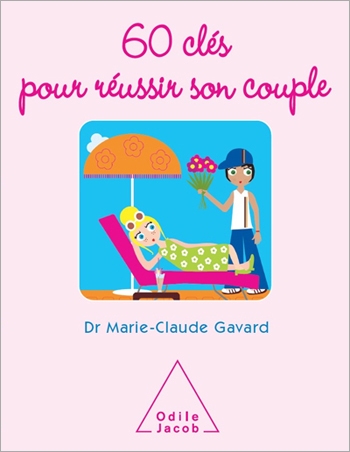
Marie-Claude Gavard
Sixty Ways to Make Your Relationship a Success
In 60 points, the author explains how to rebuild a solid relationship.

Yves Simon, François Nef
How to Overcome Anorexia And Regain the Pleasure of Living
Anorexia is often perceived as a mysterious, incurable illness. Yet despite its sinister reputation, its causes can be explained and the illness can be treated. Overcoming anorexia requires medical and psychological treatment, but it also depends on the attitude of the patients family and friends. This self-help manual offers specific solutions, advice based on the authors clinical practice, and recommendations from experts in the field. François Nef is a medical psychiatrist and Yves Simon is a psychologist. Both specialise in eating disorders

Didier Pleux
From the King Child to the Tyrant Child
More and more parents are faced with what amounts to a power take-over by their children. The tyrannical child makes constant demands, uses his parents for his own ends and creates a climate of psychological violence. The solution lies in education coupled with authority. This is a lively, clear and polemical work which shows parents how to redefine their parental authority and should enable them to feel less anxious. Besides offering practical psychological advice, it also provides an examination of what living in society means. Didier Pleux is a clinical psychologist

David Ignatius
The Increment
After tackling terrorism in his previous novel, David Ignatius continues to reinvent the contemporary spy thriller.
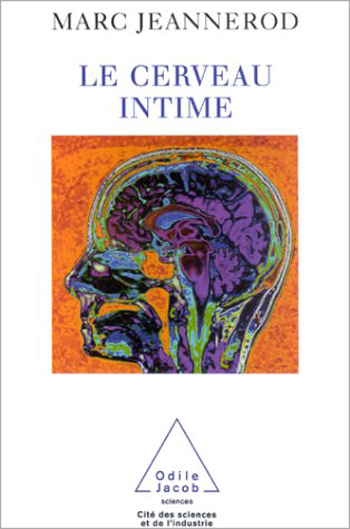
Marc Jeannerod
The Intimate Brain
Today, the brain has ceased to be regarded as existing in isolation in the human body. It is now considered in relation to its sensory, emotional and cultural environment. This book asks the question of what are the mechanisms and chemistry of the emotions? How do emotional states and the consciousness of those states permeate memory and thought? How does depression affect the emotions, and how can it be treated? How is the consciousness of self and of others constructed? Marc Jeannerod teaches physiology at the University Claude-Bernard-Lyon-I, and is the director of the Institute of Cognitive Sciences.

Alice Massat
The Success of Frauds and Fakes
Familiar scams carried out by known fraudsters are on the rise: a sign of the times?
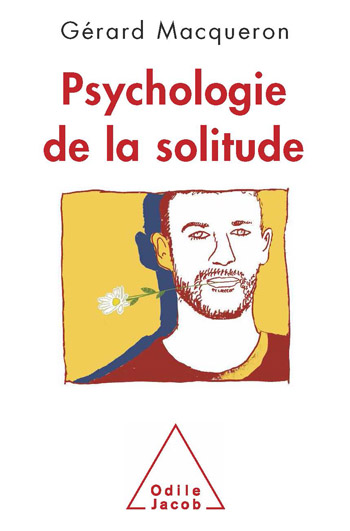
Gérard Macqueron
The Psychology of Solitude
Do you lack friends? Do you fail to establish satisfactory affective relations? Does intimacy perturb you? Are you bored? Do you have a feeling of emptiness, of uselessness? If the answer to these questions is yes, you may be suffering from intolerance to solitude

Élisa Brune, Yves Ferroul
The Secret of Women Journey through the pleasure and enjoyment
A practical approach that answers questions about how to access sexual pleasure
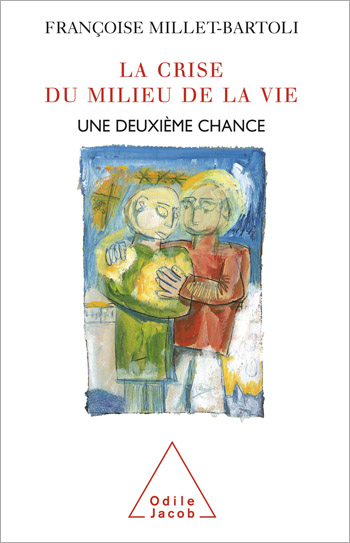
Françoise Millet-Bartoli
Mid-Life Crisis A Second Chance
In France, the notion of a mid-life crisis remains relatively little known. And yet, just like childhood and adolescence, mid-life is a specific age characterised by a distinctive psychology and, sometimes, psycho-pathology. This often-feared time of life, governed by major personal changes, can also be a period of true rebirth if the mid-lifer learns how to deal with the changes, by being informed and knowing how to react. This book focuses on what mid-lifers can do to live in greater harmony with themselves. Françoise Millet-Bartoli is a psychiatrist and psychotherapist and teaches at the medical faculty of Toulouse.

Roger-Pol Droit
The Company of Philosophers
Roger-Pol Droit takes the reader on a voyage through time, spanning the centuries from Antiquity to the present, in a series of intellectual portraits of great and usual or remarkable thinkers, beginning with Socrates and Plato and ending with Michel Foucault and Gilles Deleuze. A major part of this volume is devoted to modern philosophers, from Kant to Heidegger. The author's goal is to stimulate new thought and to bring to life for the reader the vital ideas of past thinkers.

Anne de Kervasdoué
Women and Hormonal Treatments
A subject that concerns many women as they approach menopause.

Jean Cottraux
Internal Enemies Obsessions and Compulsions
Why do some people become obsessed with cleanliness, fear of causing accidents, or the idea that they are guilty of some fault or imperfection? Where should the line be drawn between "normal" obsessions, from which everyone suffers to a greater or lesser degree, and pathological obsessions? When should measures be taken to treat those who suffer from obsessions? Why have obsessive-compulsive disorders become so common (2.5% of the population now suffer from them)? Jean Cottrauxs study of several clinical cases enables him to describe how obsessive-thought processes function. Doctor Jean Cottraux is a clinical psychiatrist and lecturer at the Université de Lyon I.



